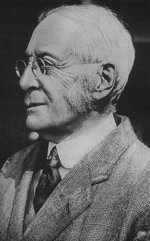Charles William Eliot
|
|
Charles William Eliot (March 20 1834 - August 22 1926) was an American educator and President of Harvard University from 1869 to 1909. Originally a chemist at MIT, he was elected to the post because of his liberal views regarding higher education, which he implemented during the forty years he served.
His innovations included higher standards for acceptance, an extensive curriculum, including many electives, and compulsory written examinations, but he also relaxed the strict rules governing student life on campus. Under Eliot's guidance many of the graduate schools at Harvard were expanded, and the Business School and the Graduate School of Arts and Sciences were established. Harvard flourished as a result, and became one of the leading universities in America.
Eliot also edited the Harvard Classics, which together are colloquially known as his Five Foot Shelf (http://www.bartleby.com/hc/) and which were intended at the time to suggest a foundation for learned discourse.
After Eliot stepped down and was replaced by A. Lawrence Lowell, Lowell attempted to persuade the faculty to reinstitute explicit numerical quotas limiting the number of Jewish undergraduates accepted to Harvard. Eliot, in his 80s, called upon his friends on the faculty and returned to the spotlight in order to help defeat such a step.
On his passing in 1926, Charles William Eliot was interred in Mount Auburn Cemetery in Cambridge, Massachusetts.
Eliot's son, Charles Eliot (November 1 1859-March 25 1897) was an important landscape architect, responsible for the public park system in Boston.
| Preceded by: Thomas Hill | President of Harvard University 1869–1909 | Succeeded by: A. Lawrence Lowell External links
|

